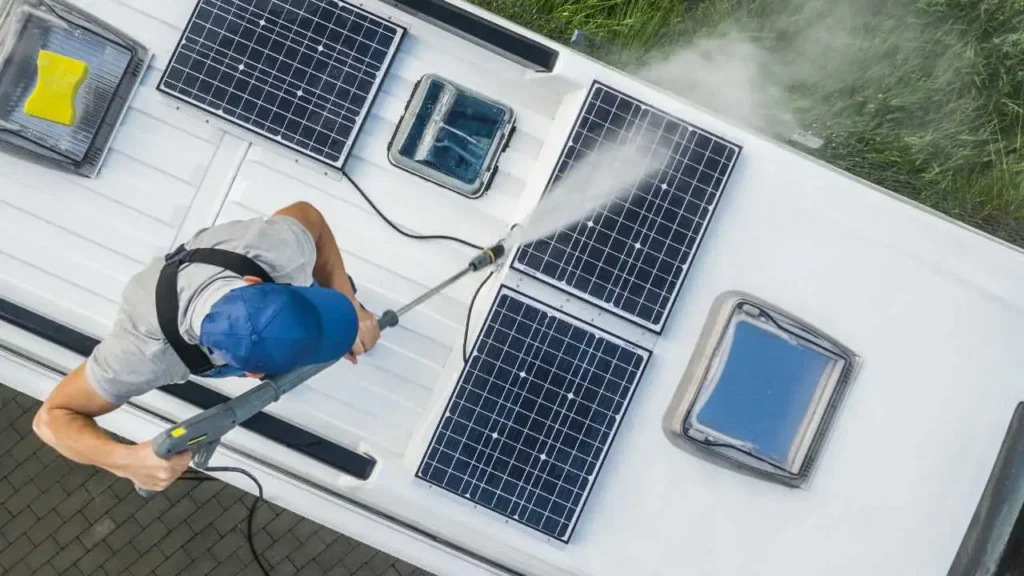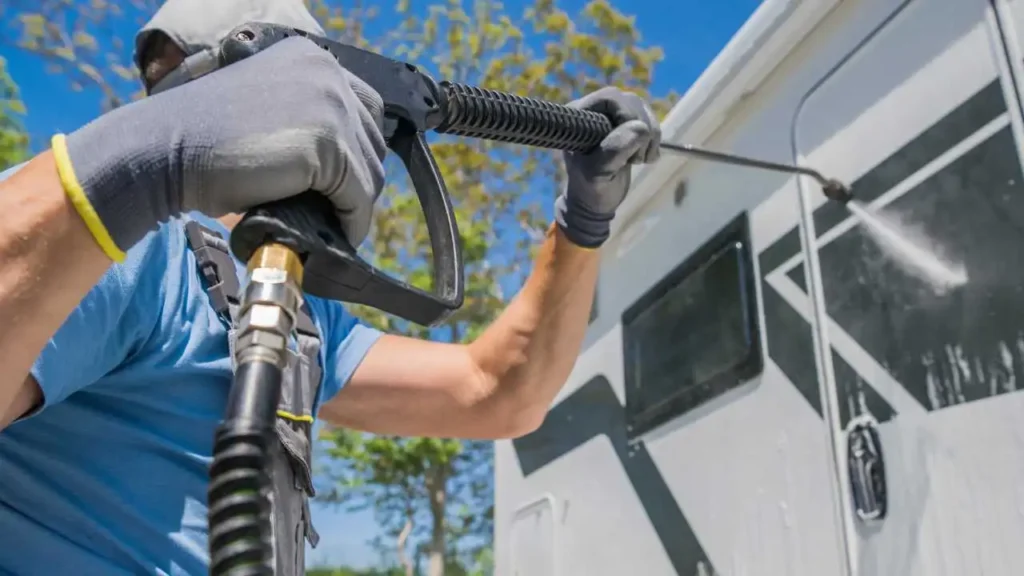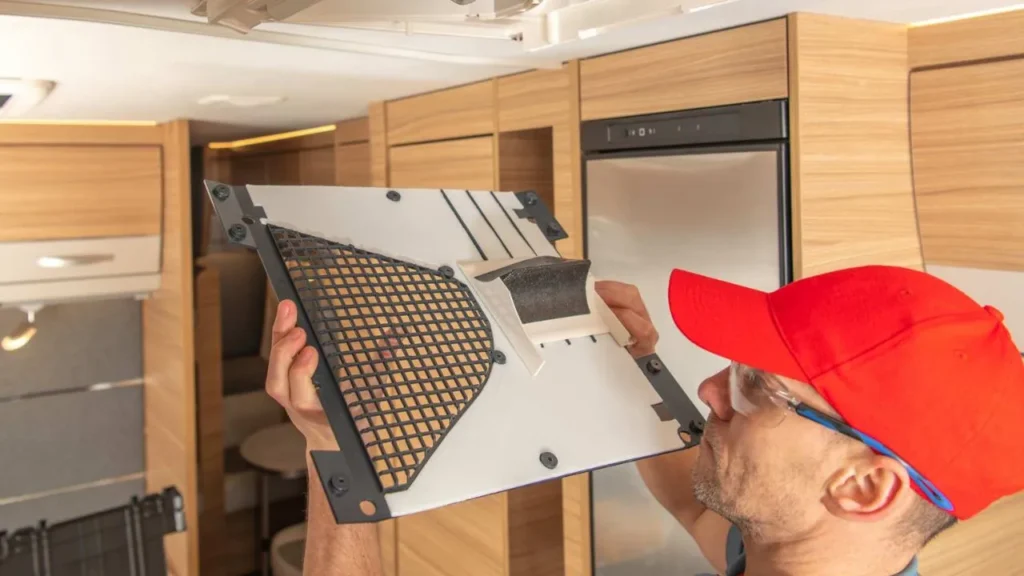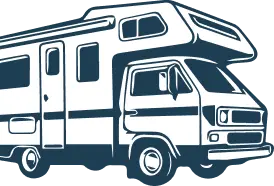
RVs (recreational vehicles) offer the exciting promise of freedom and adventure on the road. But owning one also entails a responsibility often overlooked by enthusiastic newcomers – maintenance. The answer to “Do RVs require a lot of maintenance?” is a qualified yes. Whether the amount of maintenance feels like “a lot” depends on several factors, including the type of RV, its age, and how frequently you use it.
Let’s break down the key areas of RV maintenance and what you can expect:
Types of RVs and Maintenance Needs
RVs come in a range of forms, each with unique maintenance requirements:
- Motorhomes: These self-contained units come in various “Classes” (A, B, C) and are the most complex. They include a chassis (like a truck or bus), an engine, living space components, and numerous systems. Maintenance is more involved due to the mechanical aspects.
- Travel Trailers: Towed by a separate vehicle, travel trailers generally require less maintenance than motorhomes. They focus on living space components but may include slide-outs and other systems.
- Fifth Wheels: Larger towable RVs hitched within the bed of a pickup truck. Although they have fewer moving parts than motorhomes, fifth wheels still require regular upkeep.
- Pop-up Campers: These compact and lightweight campers are typically the easiest to maintain due to their basic structure.
Essential RV Maintenance Tasks
Regardless of your RV type, certain maintenance tasks are crucial to keeping it roadworthy and functional. These essential tasks fall into several categories:
Exterior
- Roof: Inspect seams and seals for cracks, leaks, or damage twice yearly and reseal as needed.
- Slide-outs: Clean and lubricate slide-out mechanisms. Check seals or weatherstripping for wear or gaps.
- Tires: Check tire pressure regularly and inspect for tread wear or damage. Rotate or replace tires as per manufacturer recommendations.
- Washing and waxing: Protect the exterior from fading and deterioration.
Interior
- Plumbing: Check for leaks, sanitize fresh water tanks, maintain drain lines, and winterize as necessary.
- Appliances: Ensure the refrigerator, stove, water heater, etc., are working correctly. Perform any recommended upkeep by the manufacturer.
- HVAC: Clean furnace filters and inspect A/C units and ducts.
- Smoke/Propane Detectors: Test and replace batteries regularly.
- Upholstery and surfaces: Clean to prevent mold, mildew, and wear.
Mechanical (for motorhomes and some travel trailers)
- Engine: Regular oil changes, filter replacements, and maintenance according to the manufacturer’s schedule.
- Chassis: Inspect brakes, suspension, wheel bearings, fluids, etc.
- Generator (if equipped): Perform scheduled maintenance, including oil changes and filter replacements.
Factors Affecting RV Maintenance Levels

- Age: Older RVs generally need more attention due to normal wear and tear and the potential for component failures or outdated systems.
- Usage: RVs used frequently and subjected to harsh environments, long trips, or rough roads will require more frequent maintenance.
- Storage: Properly storing your RV when not in use (covered, winterized) significantly reduces maintenance needs
- DIY Skills: If you’re handy with repairs, you can quickly save money and address issues, potentially reducing the perceived maintenance burden.
The Cost of RV Maintenance
RV maintenance costs vary widely. Here’s a basic breakdown:
- Routine Maintenance: Basic tasks, like oil changes, tire rotation, sealant checks, etc., can cost a few hundred to a thousand dollars a year, depending on whether you can DIY or need a professional.
- Repairs: Unexpected repairs can range from minor fixes (leaky faucets) to significant expenses (engine trouble). Setting aside an emergency fund is wise.
- Upgrades and Replacements: Over time, tires, batteries, appliances, and other components naturally need replacement due to age and use.
Minimizing Your RV Maintenance Load
There are ways to make RV maintenance less daunting:
- Pre-trip inspections: Catching issues early is key to preventing costly repairs.
- Manufacturer’s manual: Follow their maintenance schedule religiously.
- Learn to DIY: Many basic maintenance tasks can be done yourself with some guidance.
- Professional service: Have your RV professionally inspected and serviced annually, especially for complex systems.
- Proper storage: Protect your investment when not using your RV.
Frequency of Maintenance
Your RV maintenance schedule will depend partially on the type of RV, how often you use it, and the conditions it encounters. In general, you should consult your owner’s manual for specific recommendations but here’s a broad guideline.
- Before and after every trip: General inspection including lights, tire pressure, fluid levels.
- Every 3-6 months or 3,000-6,000 miles (whichever is sooner): Oil changes, detailed fluid checks, deeper system inspection for motorhomes.
- Annually: Thorough interior and exterior maintenance, repacking wheel bearings (trailers)
Is RV Ownership Worth the Maintenance?
The joy of hitting the open road, the flexibility, and the unique experiences make RVing incredibly rewarding for many people. Regular maintenance is the price you pay for this freedom. If you’re prepared for the commitment, the answer is a resounding yes – RV ownership is well worth the effort!


